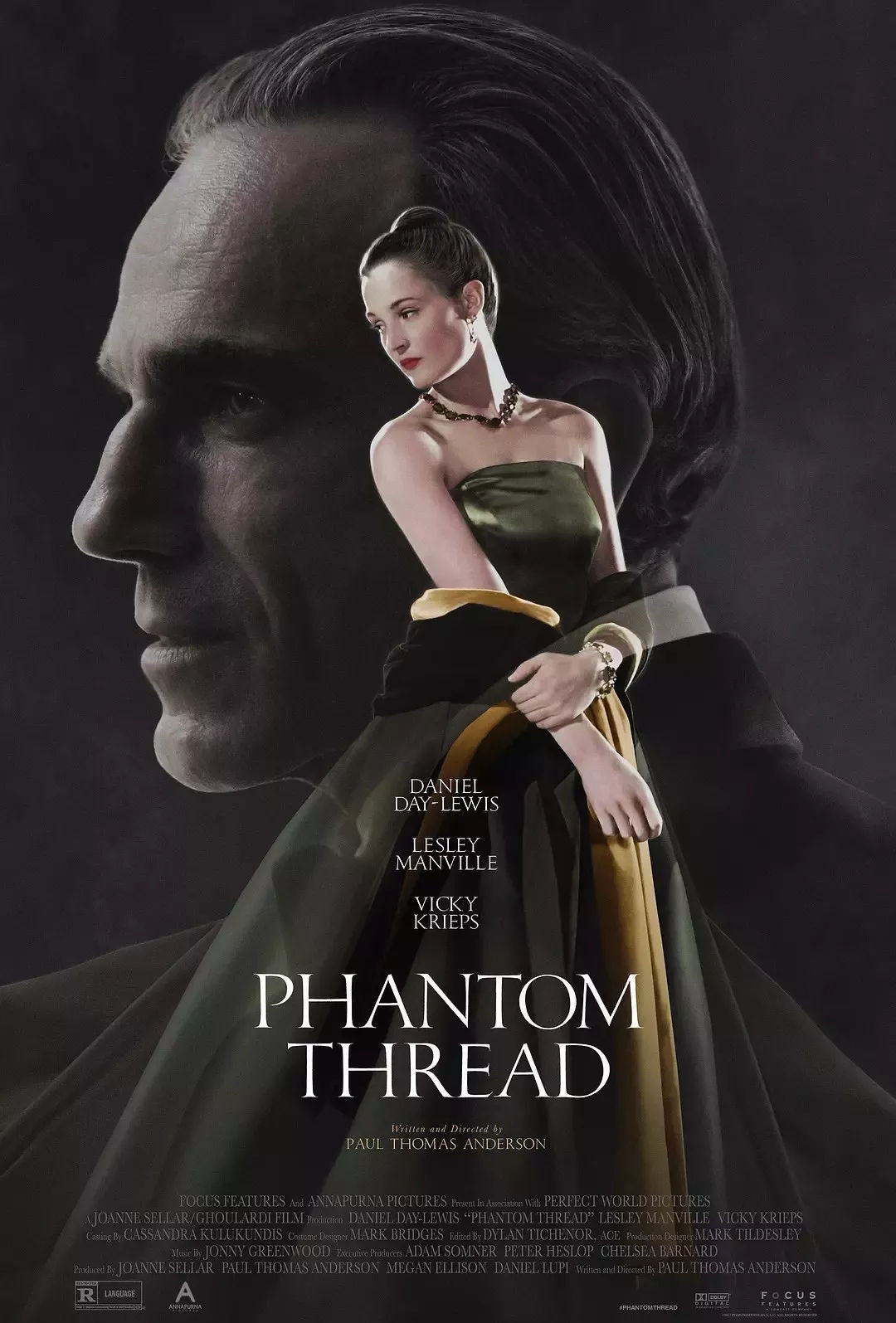Daniel Day-Lewis remains the only man to earn three Best Actor awards, and though he won’t win a fourth (Gary Oldman is a stone-cold lock to win this year for his stellar turn in Darkest Hour), it won’t be for lack of effort. As fashion designer Reynolds Woodcock in Phantom Thread, Day-Lewis turns in one of the more haunting and personal performances of his career. Even at that, however, I’d argue the great Day-Lewis is actually overshadowed by his two co-stars—a testament to the phenomenal performances that help make the film one of the more memorable of the year. It will get inside your head and simply not let go.
Under the direction of Paul Thomas Anderson, who shepherded Day-Lewis to his second Oscar (for 2007’s There Will Be Blood), the movie itself is completely mesmerizing, though it sneaks up slowly on you. Set in England during the post-war 1950s, Phantom Thread starts out looking like something from the Merchant-Ivory oeuvre, but it eventually reveals itself to be unexpectedly twisted and even darkly romantic.
Early on we see Woodcock instructing his sister and business partner Cyril (Lesley Manville), whom he calls his “old so and so”, to dispatch of his current girlfriend by sending her on her way with one of his couture dresses as recompense. This is a man married to his work, with little inclination to let anything else into his life.
But then Woodcock meets the young waitress Alma (Vicky Krieps) during a weekend break in the country. He is instantly struck by her as she waits on him at a little cafe, and he asks her to dinner. She accepts, and their evening concludes with him taking her measurements to make a new dress in an oddly haunting scene. Overnight she becomes not only his companion but his muse, and from there, the film begins its shift.
Alma is determined to not only maintain her place in the house but in his life as well. Woodcock, to this point, has been portrayed as egotistical and controlling; the mere sound of a butter knife scraping on a piece of toast at breakfast is enough to get him agitated and ruin his day. But Alma, with Cyril’s backing, is slowly bringing about a change, and the film’s true nature starts to be revealed. This isn’t merely a drawing-room period piece, it’s a mind-blowing character study and an intriguing drama that delicately unfolds into something far more sinister.
Krieps and Manville do more than hold her own with Day-Lewis, they actually steal the movie from him—no mean feat, since his performance here is among his finest. All three of them combine to provide a masterclass in subtlety and nuance as they simply become their characters. It doesn’t take long for the actors Day-Lewis, Krieps, and Manville to simply disappear.
Fans of Paul Thomas Anderson know he rarely (if ever) makes a good ol’ fashioned, straightforward movie; there’s always something else lurking, and Phantom Thread is no exception. Working from his own script (which Day-Lewis contributed to), Anderson has crafted a brilliant and smart film that’s as heady as it is haunting, a true work of art that may actually required a repeat viewing (or two) to truly appreciate.
If this is in fact the last film of Day-Lewis’ career (he announced his retirement from acting last June), it’s one heck of a swansong. And though with his resumé it’s difficult to say he saved his best for last, one thing is certain—his presence on the screen will be missed by both film scholars and audiences alike, a pang made even more real in the wake of the masterpiece Phantom Thread.
Rating
5/5 stars
